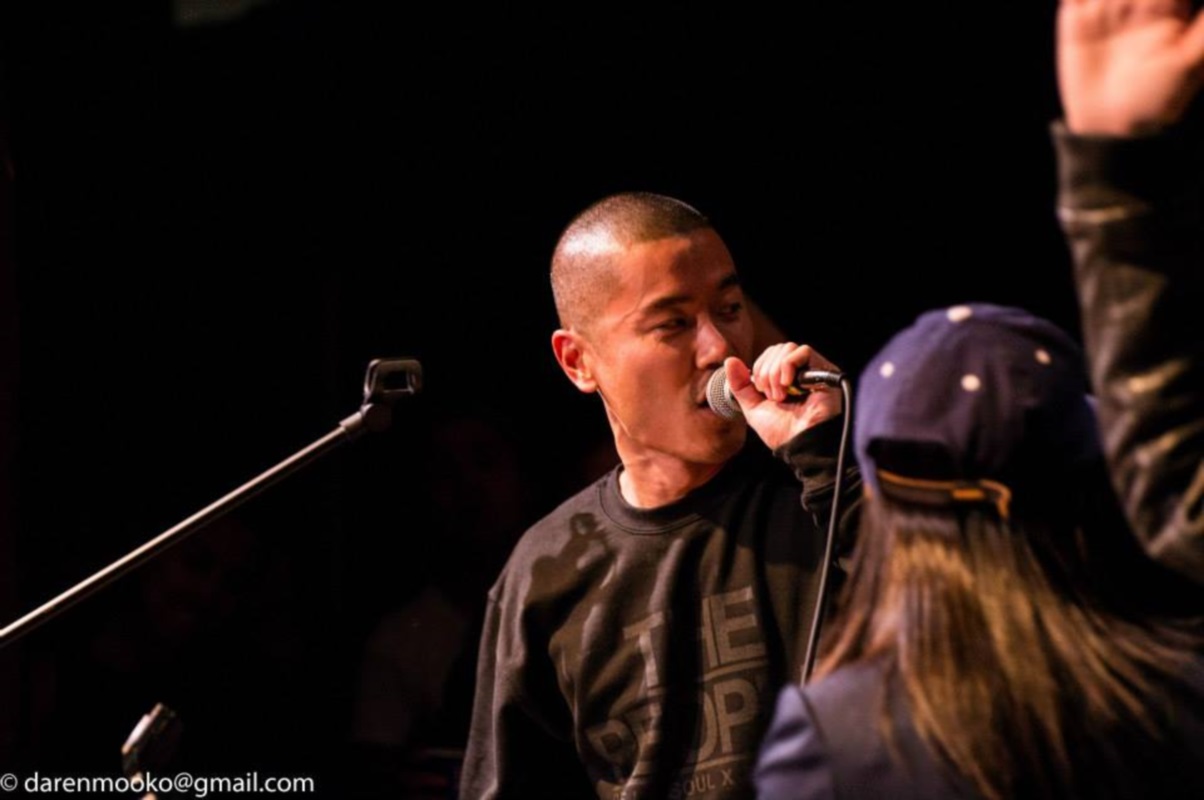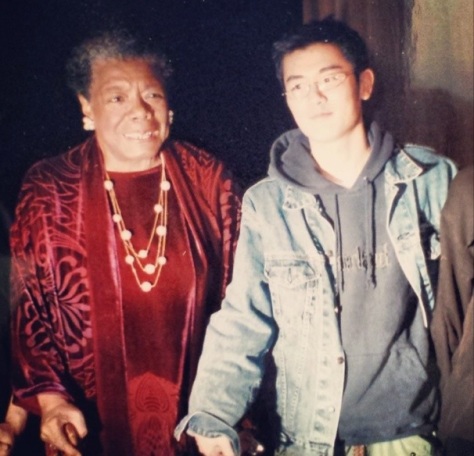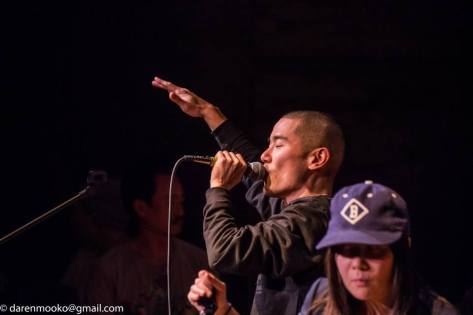If you’re about rap that aims to inspire, educate, and represent, then you need to learn about Taiyo Na. The New York-based rapper is using his talents not only to showcase his unique experiences but to also uplift others.
I was glad to be able to connect with Na in an email interview; read below and you’ll understand more about the artist behind the music.
COLOR: How did you get started in music?
Taiyo Na: I’m not one of those who was born into a musical family by any means, but my mother was and is a visual artist, and my father in his college youth was apparently a great debater, and so somehow that evolved into the vocalist/writer I became. When I was 13 years old though, it did feel like the hip-hop culture of NYC was all around me. Neighborhood friends and high school friends were ciphering away, beatboxing and freestyling, tagging in black books and throwing pieces on walls…It seemed inescapable. And I fell in love with words in rhythm, the rhymes, the flows. As KRS-ONE said, “R.A.P.” is “rhythm and poetry.”
You have a basis in spoken word poetry. From my experience with spoken word poetry (through my sister’s mentoring outreach), I have seen how spoken word can help the speaker express their life experiences in a powerful way. What personal connection do you have to spoken word?
From when I was 16 years old to 18 years old, spoken word poetry was my passion. There was nothing more exciting to me than the rawness of the words and the passionate candor of poets. I was fortunate to be introduced to 2 organizations in NYC that really fostered the voices of myself and many youth at the time. These organizations were Youth Speaks (now Urban Word in NYC) and the Asian American Writers’ Workshop. I met poets, artists, activists and educators through these communities who would become my life-long friends. I will always be a poet at the heart of anything else that is my identity.
Your lyrics often have deep meanings that relate to life experiences and social consciousness. How do you hope your lyrics affect your listeners? What do you hope to express with your music?
Thank you. I only hope that my words and music do the same thing for others as other writers and musicians have done for me, which is to empathize with you, to make you feel less alone in what can be a very hostile world, to inspire and empower strength, and to realize the greater humanity capable within all of us.
You’ve had many accolades in your career, such as being called “the realest thing seen in a while” by MTV Iggy, praised by OkayPlayer, and participating in the Beyond Race Conference, among many others. How does it feel to reach this kind of success?
It’s an honor to be associated in this manner, but I always feel the work is never done. Firstly, I am glad and grateful I have been a positive force in people’s lives through this cultural work, but I am always thinking about that next thing. I think of the voids out there, the gaps in our awareness and consciousness, through those lenses of race, gender, sexuality, class, ability and so forth, and frankly, until we are all free, until there is justice for everyone, this work of liberation is never over.
You’ve also co-founded the Holla Concert Series, which gives back to charity. What was the impetus for creating this series?
I am lucky in that the community of artists that is my immediate community consist of people with a strong sense of social responsibility–that we are people and citizens of the world firstly, and whatever talents and resources we are given, we must use them to make this world a better place than it was before. These Holla concerts, like other events and causes I have been a part of, aim to do that, raising not just the fiscal needs, but the social awareness of issues concerning injustice in our communities.
Pursuing music (or anything in the arts) can be tough. America also still upholds stereotypes about who can succeed in music, especially rap; America seems to only think only certain races are “rappers” or “singers.” What kind of advice would you give to those out there trying to make it in music, especially when it seems like America itself is throwing out racial roadblocks?
It has to be understood that we live in a racially and economically polarized world, where although the democratization of information in the digital age has created more informed people than a generation ago, the stratifications of inequality are more severe than ever before. The state continues to coddle the wealthy, inflate mass incarceration for the predominantly poor, black and brown, and now the police have the right to carry machine guns to peaceful protests. It’s a multi-tiered occupation aimed amongst its own citizens in the name of “development.” There needs to be an engaged citizenry to contest this state in precisely the ways it is lacking. In other words, more dialogue, transparency, non-violence and civil disruption. More beloved community.
We are still at the crux of imagining a new way of living, both materially and spiritually, that is inclusive of who we are. Artists exist within this world, and there is no escaping the larger problems that we face as people. We need more reflective, meaningful, responsive engagement from self-determined communities. That, to me, is “making it.” “Making it in music” is making something meaningful in this world. That is my sole barometer. That’s the real music–the critical relationships we have with people and communities.
What next can fans expect from you?
More writing. Stories and songs in the form of a larger narrative. Plays, films… The future is unwritten. But I am always writing, and your support is always gratefully appreciated.
A Young Taiyo Na with Maya Angelou. Picture courtesy of Na via Instagram
Taiyo Na at “Home for the Holladays,” part of the Holla Concert Series and benefited anti-trafficking charity 27 Million. Photo credit: Daren Mooko.


